The human cost of gaming's AI push
How game translators are fighting back against the exploitation of passion
Elea.notes is a newsletter about tech, writing and creativity. If you haven’t subscribed, join me.
🇫🇮 This week, I visited Finland, a gaming powerhouse known for companies like Supercell and Rovio. The latter’s Angry Birds holds a Guinness World Record for topping the App Store in 67 countries simultaneously.
🐷 Games don’t go international by accident. They require translation and localization—adaptation for different cultural contexts. Simple enough for a mobile game about flinging appendage-less birds at green pigs. Far harder for games rich with characters and dialogue.
🌍 I have seen a lot of excitement about tech’s potential in localization. Imagine launching your app in dozens of markets with one click or one prompt. But as usual, it’s not that simple.
🎮 This week, I spoke with Lucile Danilov, a freelance games translator (English to French) and localization consultant, about the limits of tech in game localization and how long-undervalued game translators are asserting their worth.
Why it’s important:
The challenges facing game translators—wage compression, the “exploitation of passion,” and the invisibility of their work—mirror struggles across other industries like journalism.
Their organized pushback offers a blueprint: refuse exploitative rates, demand credit, and advocate publicly for quality.
How are localization and translation different in games than in other industries?
There’s so much I didn’t know before I joined the localization subbranch of the games industry, though I had worked at that point for 12 years in games [in other roles].
On my first day, I was like, “Okay! I’m going to play the game and then translate it!” And my colleague was like, “What do you mean? Of course, you’re not going to play the game. Here’s an Excel file.”
When you do a translation, say for a tourism website, you can see exactly what the content is going to look like. [In games, translators] usually receive Excel files with thousands of words with no context as to whether these words appear as part of the interface or part of the narrative.
English in particular is a high-context language, so if you get a word like “fire,” does it mean firing a weapon? Campfire? Firing someone? You need to constantly talk to developers to know exactly where that string appears and how to translate it.
How do you collaborate with developers to understand the context?
Once the translation process begins, there’s a lot of back and forth between the translators and the developers through the query sheet process—a giant document that conveys all the questions.
I’m currently working on a project that is about 20,000 words — not that big for a game. It’s the equivalent of about two weeks’ worth of work for a regular translator, but the query sheet for that project has over 1,000 questions. Not because the translators are incompetent or don’t understand the text. It’s because of the lack of context that I was talking about earlier.
Tech has been part of translation for a long time, through computer-assisted translation tools, but how have recent developments in AI impacted the job?
As you said, tech is something that’s impacted our profession since way before generative AI came into the picture. There is a practice called MTPE, Machine Translation Post-Editing. You get a draft translation that is produced by something like Google Translate or DeepL, or more recently, Claude or ChatGPT, and your job is to simply polish it and send it back for a fraction of the price that it would cost to translate.
This looks like an attractive proposition for translation buyers. But the reality is that many times, it’s just unusable, especially in the case of games or applications that are extremely context-dependent or that require a high degree of creativity that even the most advanced LLMs struggle with.
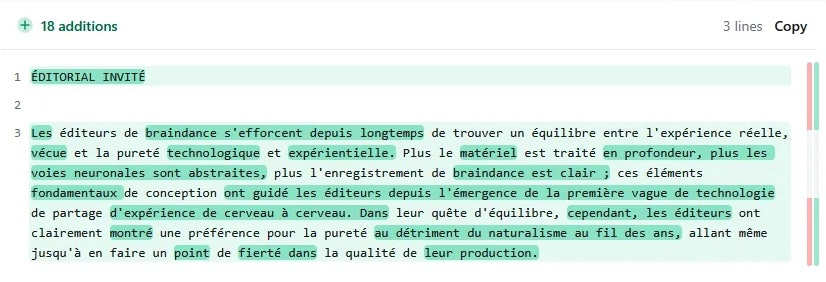
The main issue we’re facing as an industry is a push for MTPE to become prevalent across all domains of localization. Beyond the financial impact that this has on translators, it’s also a threat to the quality of the final product. If translators are not paid the correct price for their work, it’s not going to be interesting, it’s not going to be immersive, it’s not going to be good. I have a hard stance against this because I have seen it destroy careers.
I have a personal beef with AI companies and the way they have taken intellectual property from so many people without any credit or compensation. I don’t see how it has become so ubiquitous, and how people just accept it as the new standard. Why are judicial systems not protecting authors, artists, and so on? Why has the internet become a free-for-all?
How are people in your industry pushing back?
In the localization industry, people are pushing back by simply refusing the kind of work that is being offered by the biggest agencies on the planet.
Don’t quote me on exact numbers, but basically, two or three mega corporations are now controlling most of the localization market in Europe, enforcing MTPE across the board and offering slave wages for it. Recently, one company was paying five euros an hour for linguistic testing. These are companies that make millions.
Translators and testers are treated extremely badly. The conditions are like linguistic sweatshops. There is no thought for quality; you have to work as fast as possible and produce something that is barely passable.
What does this do to pay and wages?
Localization uses a different kind of pricing than many other fields, where sometimes you’re paid by project or per page. In localization, we’re usually paid by word, and more specifically, source words. So let’s say you have a document that is 2,000 English words. Depending on the agency and stuff, you can be paid anywhere between five to 15 cents. With MTPE, that can be two to three cents.
Some texts are pretty straightforward to translate, for example, a description of a castle. Sometimes you will have marketing text or a press release that requires a very high degree of creativity. All of this is paid at the same rate, so you will lose a lot more time on some text and you will gain some on others.
German, French, and most languages aside from Asian ones are longer than English, so you’re being paid to translate 2,000 English words, but in French, it may end up being 2,600 or 2,700 words.
And I guess these companies can pay these prices because there are people who are willing to work for these wages?
The game localization industry, in particular, is suffering from the exploitation of passion. A lot of young people love video games. I was one of those people once upon a time. I would do anything to work on games and accepted even the worst rate. I started in London being paid six pounds an hour.
“The game localization industry…is suffering from the exploitation of passion.”
We’re at a point where people are begging to volunteer on some projects because they want any opportunity to get their foot in the door in hopes of building a career.
I have the advantage of having a network and experience, so I can rely on that to get reliable work. But someone who is trying to start in localization in 2025—I’m not going to say it’s impossible, but it’s definitely a Sisyphean endeavor. The same goes for many creative industries.
I advise newcomers to the field that instead of looking at agencies that are going to exploit them anyway, they might as well work on their own projects, even if it’s unpaid, and do something else on the side, until they have some kind of recognition. Then they can work with reputable entities.
That’s similar to how I have approached my creative writing. I’ve had full-time or part-time roles on the side to support me as I build up credibility.
Does that mean you enjoy your day job, or is it supplementary income?
That’s a good question, and I’ve thought a lot about it. I’ve concluded that I need to feel like I am tapping into meaning in at least one part of my life, even if that’s not what’s written at the top of my LinkedIn. If I do a well-paying role that I know is not 100% my passion, I can feel fulfilled as long as I’m able to feed my passion somewhere else.
I’m happy that you can find a happy medium, because I see a lot of people struggling.
I am in a privileged position, which is why I try and use my voice to speak out where others cannot for fear of biting the hand that feeds them.
Continuing with how you’ve supported people in the industry, I love the sample translation test you have on your website for prospective translators.
It was the very first thing I wrote, and it really resonated with people.
When you try to get into the industry, it’s very nebulous. I kept receiving tests from agencies, and they were all so widely different that I didn’t know what to expect. I was like, “It’s such a shame that people cannot prepare for this.”
People have said they passed an agency test thanks to the mock test. It’s been amazing.
Why isn’t there pressure from gamers for higher-quality translation or localization?
This is a conundrum. Many gamers, not all, think that translation should be word-for-word, so any machine translation is good enough. They don’t realize sometimes that the games they are enjoying so much are, in part, thanks to the work of translators. They think those words appear like magic on the screen.
The reason they think it appears magically is because, for a very long time, translators were not credited in the game credits. Those mega corps I was talking about earlier, or developers themselves, were not putting the translators in the credits so they could claim they did everything themselves.
When [translation] started being subcontracted to agencies, they started baking in clauses in the contract that said, “You will not be credited because this is our client’s policy.” It was a take-it-or-leave-it kind of deal. You had to accept that your name would not appear, and you could not talk about the project even after release.
When I joined the industry in 2019, I was appalled that this was the status quo. So, along with a couple of colleagues, we started a movement called #translatorsinthecredits. We started calling out the game developers, the game publishers, and the agencies that were not crediting the translators, and getting a few allies in the press to report on the topic. In the last three or four years, we managed to bring down the giants, remove those clauses from their contracts, and get people properly credited.
This has been amazing because people need to be able to mention they worked on a game for their credibility and their career. Part of the reason I’m able to mention a title like Mouthwashing [that I worked on] is that we have removed those clauses.
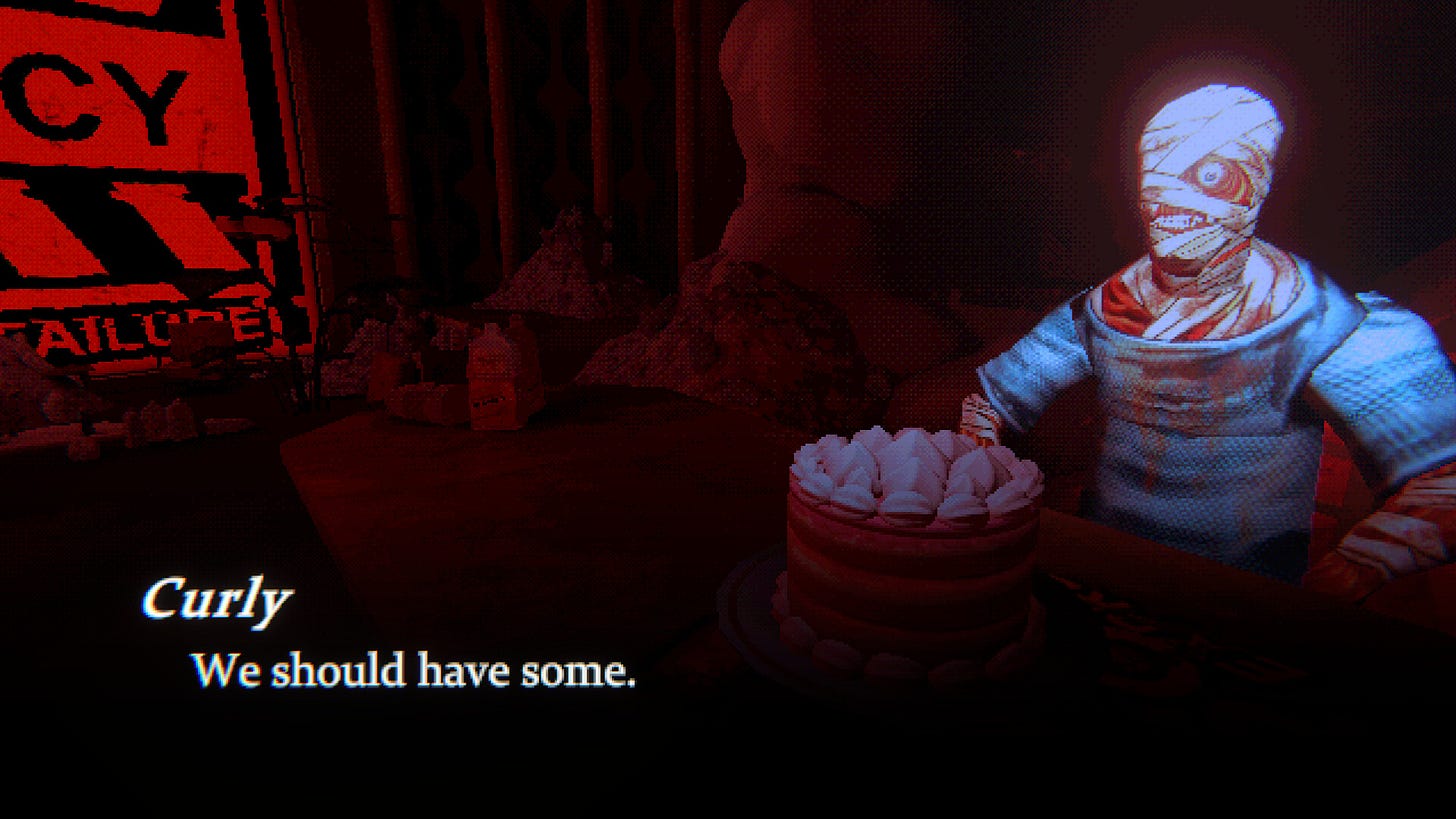
What makes you optimistic about localization?
Localization specialists who work in games are gamers. I have been a gamer since the age of four. We are very involved in gaming communities, and we want what’s best for games. We love games as much as players do.
This makes me so optimistic, because I can see translation communities being more and more vocal about unethical practices in localization in general: MTPE, the lack of credits, the lack of remuneration, and everything. Just a few years ago, almost nobody was talking about this.
Now, thanks to people talking on social media and associations like the International Game Developers Association, we’re spreading the word and making newcomers aware that the status quo does not apply anymore. You don’t have to be pressured into accepting a miserable wage and getting no credit for your hard work.
But beyond localization, the problem is that currently, the games industry is going through a very, very rough phase. There have been thousands of layoffs worldwide for a variety of reasons. AI is one of them, but I wouldn’t say that it’s a major factor.
Yes, I also see this in tech right now. People are blaming the difficult job market on AI, but it’s also a rebound from overhiring and other factors.
In localization in particular, however, I think AI has a much bigger impact than in some other fields, because localization is not seen as a profit enabler.
It is easy to see localization not just as outsourceable, but outsourceable to some less-than-ethical providers who can pretend that they did an okay enough job to cover this or that market and call it a day.
What are you working on now?
I continue to fight for translators in the credits. We have created a game translator edition for the Game Awards because many of the games that are nominated do not credit their translators. We use the event to bring awareness to the cause.
📚 Reading this week.
Lucile on the human cost of AI.
A musing on TikTok videos as modern sonnets. (h/t Aidan Walker)
I want to print this out and read it daily: in an AI world, discernment is a valuable skill. (h/t Naomi Alderman)
How companies are dealing with a deluge of machine-written applications: the return of in-person assessments, interviews earlier in the process, and advertising jobs in targeted communities.
A highlight of my Helsinki trip was visiting modernist architect Alvar Aalto’s house, a gorgeous example of mixing work and private spaces in a home. Take a peek.
Thank you for reading! Next week, we have an interview with an entrepreneur who is changing the way that we market books with AI (and also happens to own an island).
If you’re not yet subscribed, sign up.




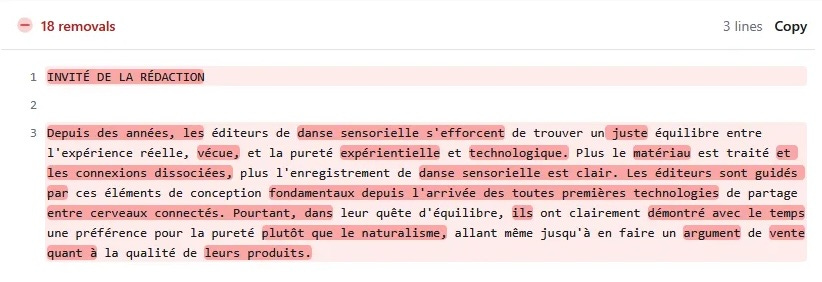
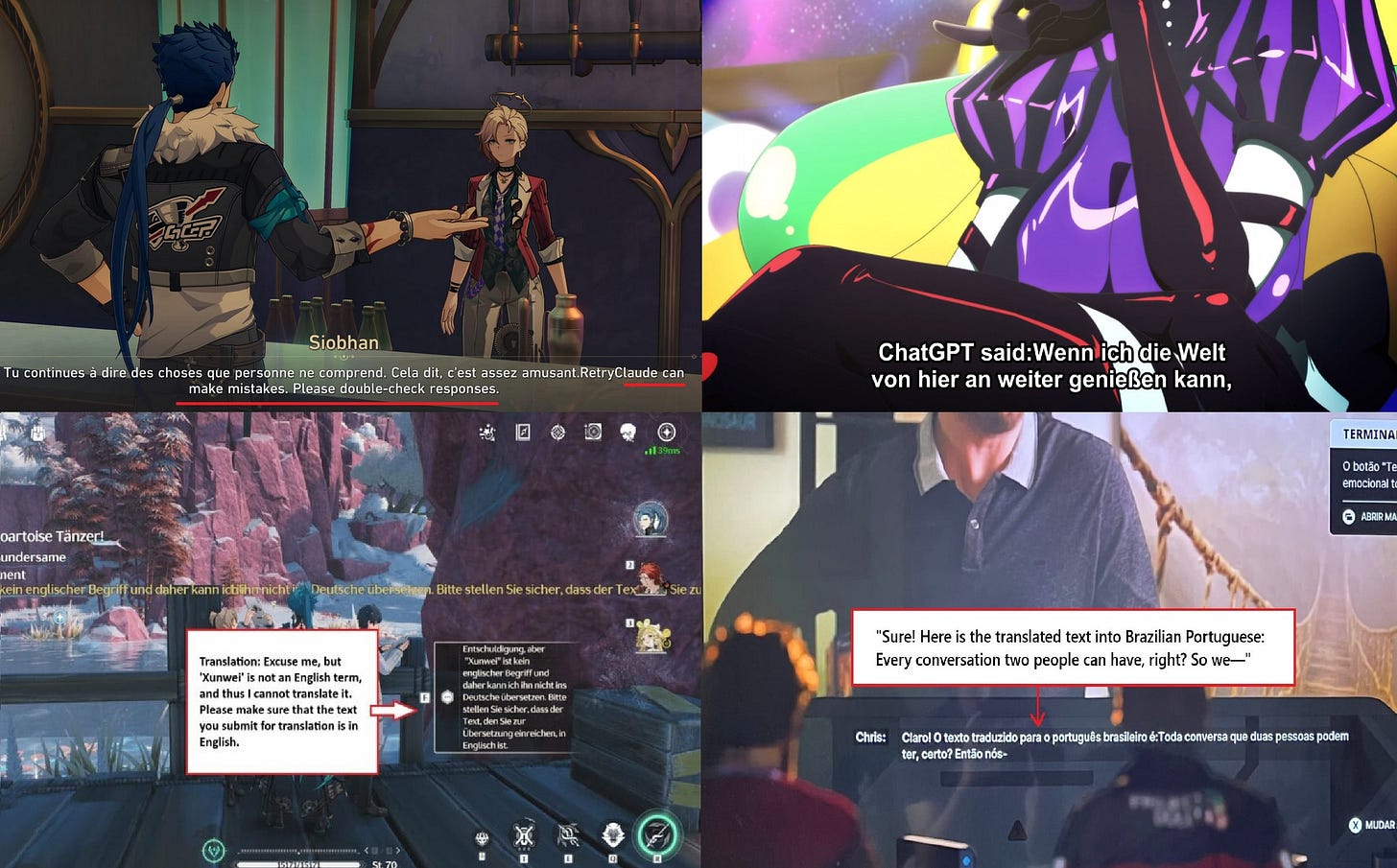
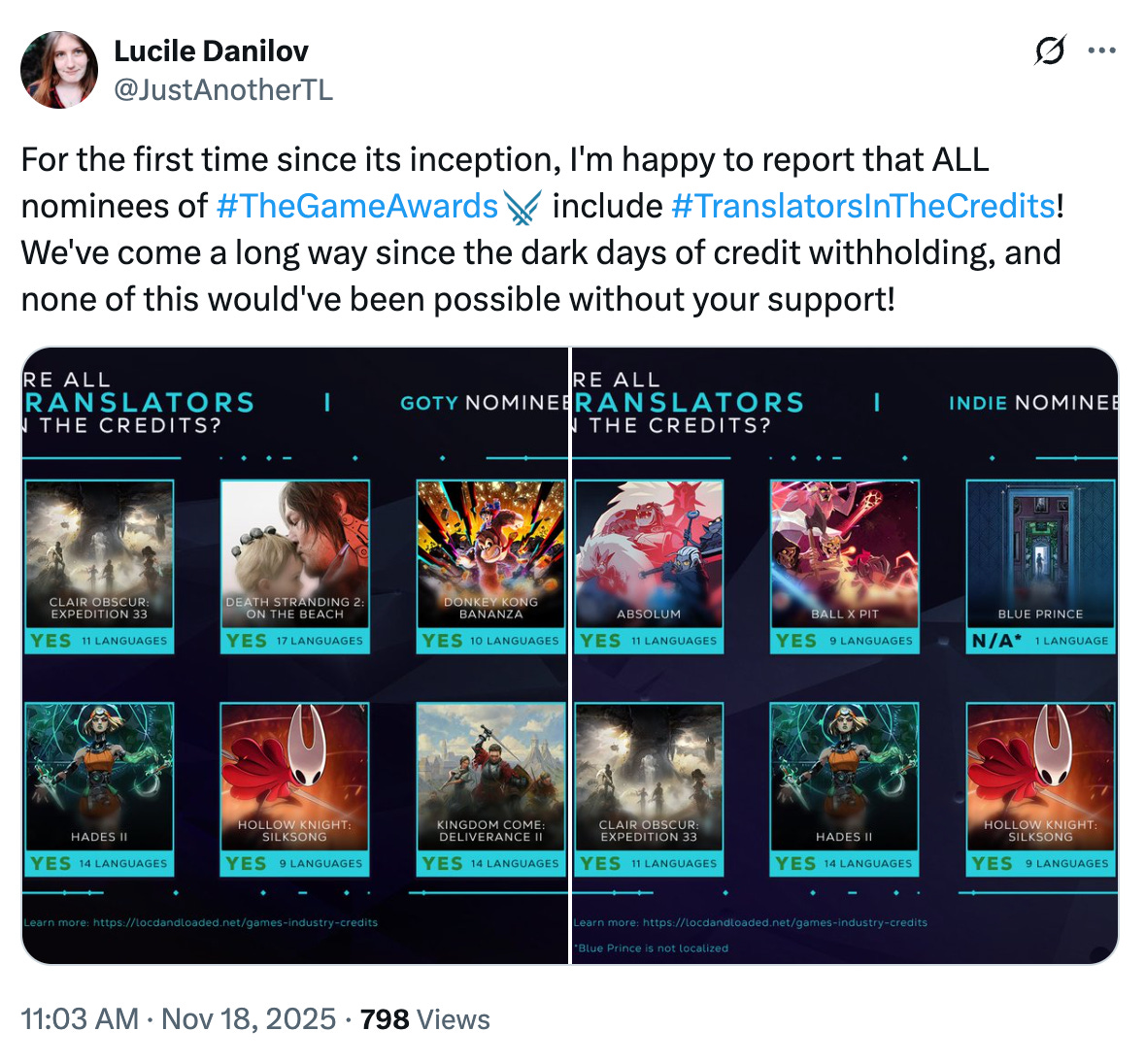
Fantastic article Eleanor, thank you! The key point for me here is the need to make sure that all skilled workers are paid the amount they deserve. We are often paying for decades of experience and cultural nuances that an AI tool will never be able to learn. And translators will always have a special place in my heart for the amazing work they did in helping to bring JRPGs over to the UK in the 90s. 🙏